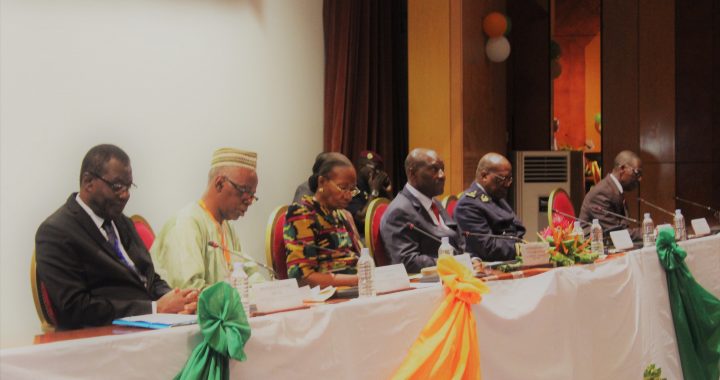The 5th Congress of the Association of African Historians (AHA) was held from 6 to 9 November 2018 at the Felix Houphouet-Boigny Foundation for Peace Research in Yamoussoukro, in collaboration with the Ivorian section of the AHA and the public universities of Côte d’Ivoire. The theme of this congress, which brought together nearly 150 participants from historians from across Africa, Europe and North America, was: “African history and its current issues”.
The Vice President of the Republic, HE Daniel KABLAN DUNCAN proceeded to the official opening of the Congress, in the presence of the Grand Chancellor of the National Order, Pr Henriette DAGRI DIABATÉ, renowned historian. In his address, the Vice-President recalled the major challenges facing the African historian, namely: land issues, identity crises, migratory flows to Europe and America, peace and political stability , good governance, democracy and the rule of law, etc. Appreciating the efforts made by the AHA for the development of an African historical consciousness, he invited the participants to put their expertise at the service of the development of the continent.
The outgoing President of the AHA, Prof. Doulaye KONATÉ, meanwhile indicated that the organization of this congress marks a new stage in the life of the association. “It is now time to do what the late Burkinabe historian Joseph Ki-Zerbo called the relay race,” he added. For this reason, he invited the delegates to look into the search for alternative financing for the association as well as its mode of management.
More than sixty papers were made and divided among 10 panels. At the end of this congress, Pr Aka KOUAMÉ, Professor of Modern History at the University of Félix Houphouët-Boigny in Abidjan, was elected president of the Association for the next three years by his African colleagues. He is a specialist in slavery, moreover President of the Ivorian section of the AHA. The new president was pleased at first with this election which marks the confidence which it has granted of the community of the African historians. He engaged with his team to get to work using information and communication technologies (ICTs) to remobilize all African sections and historians around the world around common goals.

